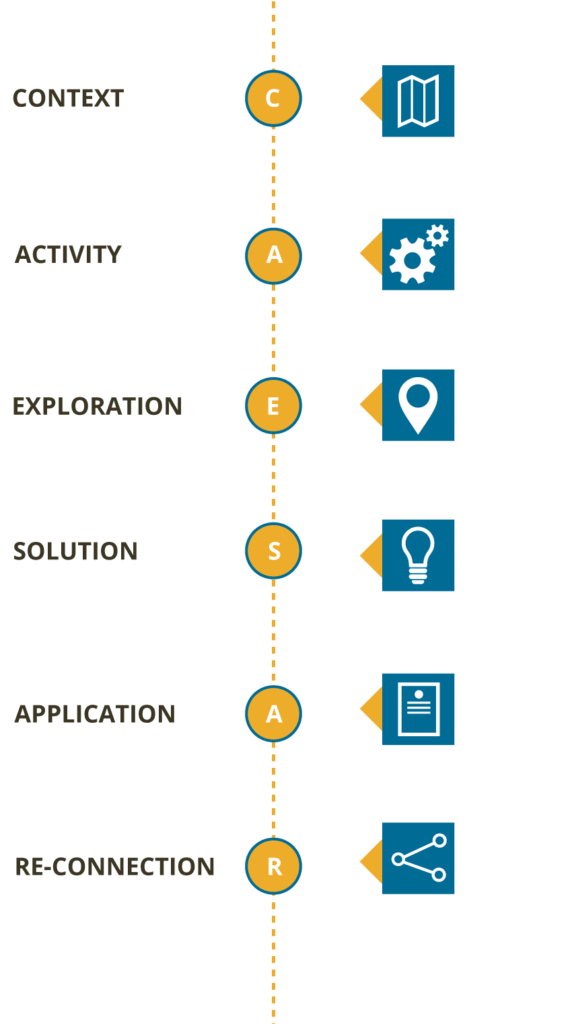In many companies, the topic of e-learning is still essentially a "mandatory event" for compliance training to teach legal requirements or rules of conduct. A creative e-learning concept ensures the desired enthusiasm for learning.
There is great potential in the digital teaching of application-related skills that contribute to corporate strategy and goals. The advantages of e-learning in adult education over traditional forms of learning have already been demonstrated and confirmed many times over. This must be taken into account in e-learning consulting and to incorporate it into the next project phases in the best possible way.
However, the success of digital learning activities depends heavily on the quality of the implementation of the individual learning processes. If the design of the digital learning experiences is didactically immature or is not tailored to the Target groupTarget group in the education sector: group of people with common characteristics for whom education... More the desired knowledge and learning transfer of the created learning concept will fail.
With the strategic e-learning concept for corporate topics from our e-learning agency turns dry specialist topics, for example, into sustainable learning experiences that provide employees with up-to-date knowledge and lead to a motivating sense of achievement.
Would you like to use company-specific topics and intelligent e-learning to impart knowledge, train specific skills in the long term and further consolidate knowledge? Then we can help you a great deal here - with the didactic concept guide called CAESAR.

Make the life, work or application context clear from the outset and refer to it consistently.
Once the context is clear, the aim is to activate the learners with a task or problem that needs to be solved with the help of the learning module.
Learners are instructed to explore options for action. Through direct feedbackFeedback is an immediate response that helps learners to recognize their learning progress... More consequences and different courses of action become tangible.
Specialist knowledge is required to solve the problems. This is taught in a concrete and action-oriented way as individual "skills" that build on each other.
The learners apply the skills to several application examples. However, they should not be "overtrained".
New knowledge can only be retrieved by linking it to existing prior knowledge. This is why newly acquired skills are linked to existing skills.
Let's assume that the learning objective of a product training course is "Sales and service staff should be able to explain and demonstrate the benefits of the product to specialist dealers". To achieve this learning objective, more than just product knowledge is required. Rather, the training must impart communication and problem-solving skills.

But is it even possible to teach such communication and problem-solving skills in an e-learning course?
Yes, teaching communication and problem-solving skills in an e-learning course is possible! A study by Aslan from 2021 provides evidence that e-learning courses based on problem-based learning (PBL) can promote the development of communication and problem-solving skills.
Before the production of the learning modules begins, it is essential to carefully review the source materials and use this as the basis for a detailed storyboardA storyboard is a visual plan for e-learning courses that outlines the content, structure & inter... More to develop. This storyboard is then reviewed and approved by the relevant department to ensure that all required content and learning objectives are included. Only then is the selected authoring toolAn authoring tool is a software program that facilitates the creation of e-learning courses with... More - for example from our authoring tool comparison - the e-learning module is created professionally and efficiently.
Daily practice shows that the design of e-learning solutions is much more complex depending on the target group, level of competence and individual framework conditions. This is why numerous renowned clients rely on our in-depth expertise as leading experts in the field of e-learning concepts. We provide our clients with comprehensive support in consultingconception, creation and localization of your learning contentLearning content is the basis for the knowledge and skills required in educational contexts... More. Outsourcing this crucial phase in e-learning project management allows you to save time, use resources efficiently and take the pressure of completion in your stride.
Whenever you need professional advice or support with implementation - we are there for you.
Feel free to contact us!
